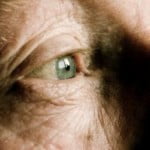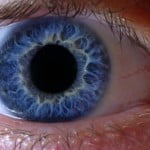
More recently, missions on board the International Space Station have revealed previously unreported effects of long-duration space flight on eyesight.
Now, a study published in The FASEB Journal reports a new and significant finding in this area, as senior author Dr. Scott M. Smith, a researcher in the Biomedical Research and Environmental Sciences Division at NASA Johnson Space Center in Houston, TX, explains:
“We’ve identified a genetic link in astronauts with vision issues.”
He and his colleagues discovered that two significant genetic differences can affect astronaut vision. The differences influence enzymes that direct an essential biochemical process in cells.
Dr. Smith explains that, while they have not identified the exact mechanism that leads to vision problems, their findings narrow down who to study and should hasten the search for the cause and how to treat the problem.
One-carbon pathway
The discovery surrounds the role of enzymes that direct the “one-carbon pathway” – an essential metabolic process of cells. Disruption in the pathway has been linked to many diseases, and more recently, to eye health.
Previous studies have identified that astronauts who experience vision problems in space have higher pre-flight levels of some one-carbon pathway metabolites – for example, homocysteine.
Dr. Smith and colleagues decided to investigate some of these further. They conducted a number of tests on blood samples collected from astronauts and compared the results with measurements from vision and eye exams.
They found that two genetic differences in the enzymes that control the one-carbon pathway were significant in determining whether individual astronauts developed vision problems in low-gravity environments. They also found evidence to suggest levels of B vitamins may be another factor.
Previous studies suggest genetic variation in the enzymes that control the pathway are implicated in a range of diseases, including cardiovascular disease, stroke and polycystic ovarian syndrome (PCOS).
Dr. Smith sums up the importance of the study:
“Not only may the results have significant implications for NASA and future astronauts, but the implications for the general population could be profound.”
Meanwhile, Medical News Today recently learned how a large gene study has given aboost to research into age-related macular degeneration – a leading cause of vision loss among people aged 50 and over.
[SOURCE :-medicalnewstoday]



